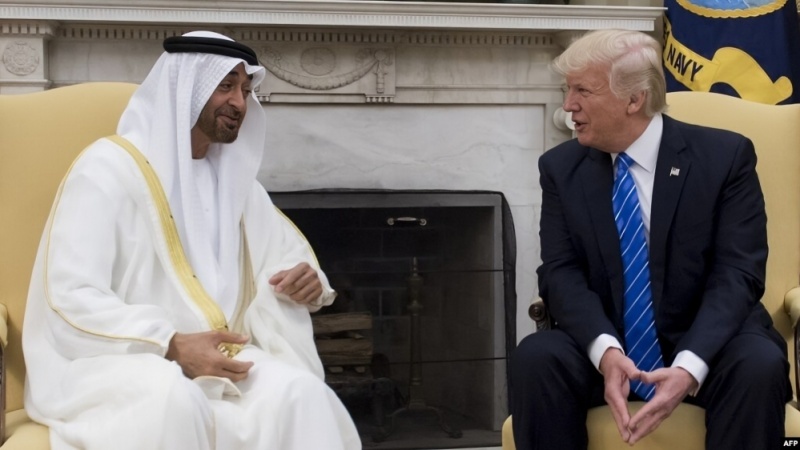Pars Today's Iran and world news package
What is the new Washington-Abu Dhabi plot in Yemen?
Pars Today - With the escalation of U.S. airstrikes on Yemen and rumors of a ground offensive by UAE-backed forces targeting the strategic port of Hodeidah, the Red Sea region is on the brink of a new crisis.
Since March 15, 2025, U.S. military strikes on Yemen have commenced, aimed at weakening Ansarullah and protecting Washington’s interests in the region. These attacks have targeted Yemen’s military and economic infrastructure, leading to civilian casualties and exacerbating the humanitarian crisis in the country.
On Monday, The Wall Street Journal reported that the likelihood of a ground assault by the UAE-backed Southern Transitional Council (STC) on key provinces such as Hodeidah and Sanaa has increased.
Supported by air cover from U.S. Central Command (CENTCOM), these forces are preparing for a high-risk operation to seize the strategic port of Hodeidah, Yemen’s primary gateway to the Red Sea.
This Pars Today article examines the significance of the Hodeidah port and the potential consequences of a ground offensive in Yemen.
Hodeidah: Yemen’s lifeline
The port of Hodeidah, controlled by Yemen’s National Salvation Government, is not only a vital commercial hub but also the main conduit for humanitarian aid entering the country. A blockade of Hodeidah could cause famine and severe shortages of medicine for millions of Yemenis, with international organizations warning that such a move would intensify the humanitarian crisis.
Conflicting interests of regional players
The UAE, through its support for the Southern Transitional Council, seeks to bolster its influence in the Red Sea and compete with Saudi Arabia. In contrast, the Saudis, having learned from their eight-year war in Yemen, are reluctant to engage in new military adventures. This divergence of interests has complicated cooperation between the two traditional U.S. allies.
Broad regional consequences
Yemen’s control over the Bab al-Mandeb Strait gives it a pivotal role in the global energy market. Continued conflict could disrupt this critical passage, driving up energy prices. Meanwhile, popular resistance in Yemen has strengthened, with growing national unity against foreign interventions. Analysts warn that without a political solution, these conflicts will not only destabilize Yemen but also risk escalating into a broader regional war.
Ansarullah’s role in the Axis of Resistance
The Al-Aqsa Storm operation demonstrated that Ansarullah is a key player in the Axis of Resistance in the Red Sea. With over 350 operations in the region, Yemenis have rerouted commercial shipping and paralyzed the port of Eilat in occupied Palestine. These actions have prompted direct U.S. involvement, with Washington acting as a proxy for Israel by bombing Yemeni targets.
In conclusion, a potential attack on Hodeidah represents a high-stakes gamble for the U.S. and UAE, which could lead to a protracted war, a humanitarian catastrophe, and widespread regional tensions.
MG/UR



